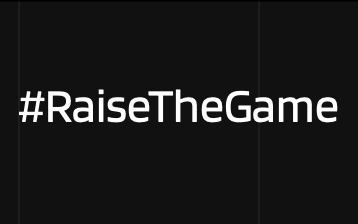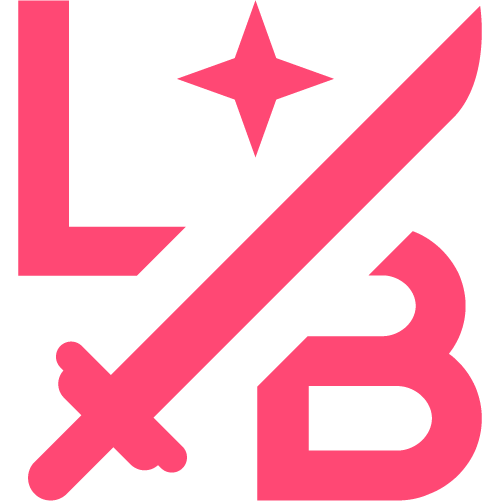Specific considerations







Key organisations & resources
 Visit website on #RaiseTheGame
Visit website on #RaiseTheGame #RaiseTheGame
RaiseTheGame is a collaborative and high-impact pledge to improve equality, diversity and inclusion in the games industry.
 Visit website on BAME in Games
Visit website on BAME in Games BAME in Games
BAME in Games is a grass-roots, advocacy group, dedicated to improving ethnic diversity and encouraging minorities to work within games
 Visit website on Black Girl Gamers
Visit website on Black Girl Gamers Black Girl Gamers
An award winning community-powered organisation that advocates for diversity, inclusion and equity in the games industry.
 Visit website on Diversily
Visit website on Diversily Diversily
Diversily helps innovative organisations to embed diversity and inclusion into their core, to drive up performance and impact.
 Visit website on Limit Break
Visit website on Limit Break Limit Break
Limit Break is a mentorship programme aimed at underrepresented people working in the UK games industry.
 Visit website on Muslamic Makers
Visit website on Muslamic Makers Muslamic Makers
A community of Muslim Changemakers helping Muslims level up across the tech industry and beyond.
 Visit website on Ukie
Visit website on Ukie Ukie
The trade body for the UK games and interactive entertainment industry.
Calendar events

Fast of Tisha B’av
Tisha B’Av is a solemn Jewish fast day commemorating the destruction of both the First and Second Temples in Jerusalem, as well as other tragedies in Jewish history, observed with fasting, prayer, and the reading of the Book of Lamentations.
Learn more about Fast of Tisha B’av
Krishna Janmashtami
Krishna Janmashtami celebrates the birth of Lord Krishna, an avatar of the Hindu god Vishnu, with devotional singing, fasting, re-enactments of episodes from Krishna’s life, and visits to temples.
Learn more about Krishna Janmashtami
National Inclusion Week
Founded by Inclusive Employers, National Inclusion Week (NIW) is a week dedicated to celebrating inclusion and taking action to create inclusive workplaces.
Learn more about National Inclusion Week
Black History Month
Black History Month is an annual observance dedicated to celebrating the achievements, contributions, and history of Black individuals and communities, while also reflecting on the struggles they’ve faced throughout history.
Learn more about Black History Month
Rosh Hashanah
Rosh Hashanah, often referred to as the Jewish New Year, is a two-day celebration marking the beginning of the High Holy Days, characterized by introspection, prayer, and the blowing of the shofar (a ram’s horn).
Learn more about Rosh Hashanah
Navaratri
Navaratri is a nine-night Hindu festival dedicated to the goddess Durga, celebrated with fasting, dancing, and devotional practices, culminating in the festival of Dussehra on the tenth day.
Learn more about Navaratri
Yom Kippur
Yom Kippur, also known as the Day of Atonement, is the holiest day in the Jewish calendar, observed with fasting, intensive prayer, and reflection, seeking forgiveness for sins and reconciliation with God.
Learn more about Yom Kippur
Diwali
Diwali, often called the “Festival of Lights,” is a major Hindu festival celebrating the victory of light over darkness and good over evil, marked by illuminating homes with lamps, exchanging gifts, feasting, and offering prayers to deities, especially Lakshmi, the goddess of wealth and prosperity.
Learn more about Diwali
Islamophobia Awareness Month
Islamophobia Awareness Month (IAM) is a campaign founded in 2012 by a group of Muslim organisations. It aims to showcase the positive contributions of Muslims as well as raise awareness of Islamophobia in society.
Learn more about Islamophobia Awareness Month
Birthday of Guru Nanak
The birthday of Guru Nanak, also known as Guru Nanak Jayanti or Gurpurab, celebrates the birth of the founder of Sikhism, observed with hymns, prayers, and processions, and is one of the most sacred festivals in Sikh tradition.
Learn more about Birthday of Guru Nanak
International Day for the Abolition of Slavery
The International Day for the Abolition of Slavery marks the date of the adoption, by the General Assembly, of the United Nations Convention for the Suppression of the Traffic in Persons and of the Exploitation of the Prostitution of Others (resolution 317(IV) of 2 December 1949).
Learn more about International Day for the Abolition of Slavery
Human Rights Day
In the decades since the adoption of the Universal Declaration of Human Rights in 1948, human rights have become more recognised and more guaranteed across the globe.
Learn more about Human Rights Day
Christmas Day
Christmas Day celebrates the birth of Jesus Christ and is widely observed with religious ceremonies, gift-giving, festive meals, and decorations, serving as a central holiday in the Christian calendar.
Learn more about Christmas Day
